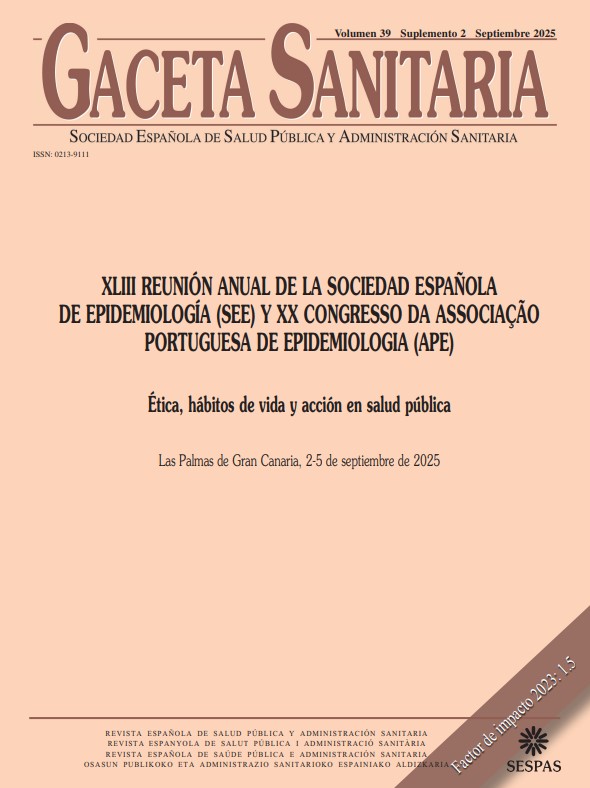943 - DIRECT COSTS WITH DEMENTIA HOSPITALIZATION AND ITS DETERMINANTS IN PORTUGAL IN 2018
Comprehensive Health Research Center; NOVA National School of Public Health; National Institute of Health Doutor Ricardo Jorge.
Background/Objectives: Major neurocognitive disorders, as is the case of dementia, are characterised by a decline in cognitive abilities, leading to adverse health outcomes and deterioration in quality of life. The projected rise in diagnoses for the coming decades represent a public health concern, impacting patients and society, and placing a considerable financial burden on healthcare systems. This study aims to estimate hospitalisation costs with dementia in Portugal in 2018, and its determinants.
Methods: We used inpatient data from the Portuguese publicly financed hospitals database (Base de Dados de Morbilidade Hospitalar, ACSS) for 2018. We selected hospitalization records (n = 25,830) with dementia-related diagnosis, either primary or non-primary, based on ICD-10. We computed average costs for inpatient cases, using tariffs from national legislation, stratifying by dementia type. We performed a multivariate regression analysis (gamma, log link) for assessing costs’ determinants (sex, age, region, number of comorbidities, type of dementia, medical or surgical inpatient, and destination after discharge).
Results: The average cost per hospitalisation was 3,084 €. Stratifying by type of dementia, Alzheimer's patients accounted for 2,441 €, vascular dementia for 4,079 €, and other degenerative diseases (including Lewy body and frontotemporal dementia) for 2,515 €. This represented a national economic burden of 79.7 million €. Younger individuals (55-64, 65-74, and 75-84) incurred significantly higher inpatient costs of 1,042 €, 676 €, and 216 €, respectively, compared to 85+. Compared to unspecified dementia, Alzheimer's was associated with higher costs, while patients with other dementia showed no significant cost differences. The costs were higher (p < 0.001) with each additional comorbidity (+23 €) and severity level (+1,439 €). Compared to deceased (p < 0.001), patients discharged home had lower costs (-328 €), while those discharged to other settings incurred higher costs (+471 €). Non-surgical cases were 3,961€ less costly than surgical ones (p < 0.001).
Conclusions/Recommendations: Dementia-related hospitalisations imposed a substantial financial burden on the Portuguese public healthcare system in 2018 and are expected to rise in the future. Costs were driven by key factors such as age, number of comorbidities, severity, destination of discharge, and hospitalisation type.
Funding: Fundação para a Ciência e a Tecnologia, GRANT NUMBER: 2022.04684.PTDC.















